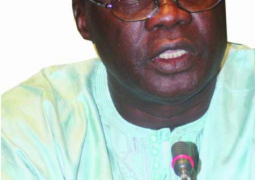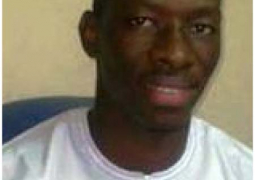The recent popular uprising in many parts of the Muslim world took almost everyone by surprise. The immediate causes of the wide-ranging protests and civil resistance in these countries are a matter of much discussion and debate. Theories ranging from the purely materialistic and economic to the metaphysical and religious-with a number of conspiracy theories in between-have been put forth as the probable causes of these revolutions-in-the-making. Wikipedia’s claim that “the demonstrations were precipitated by high unemployment, food inflation, corruption, a lack of freedom of speech and other political freedom and poor living conditions,” can be taken to be the general consensus of Western observers. On the other end of the spectrum id the message coming from other side that the revolts signify an “Islamic awakening. What can conclusively be said is that these two perspectives are not as diametrically opposed as they appear to be.
There is no doubt that the uprisings were at some point fuelled by domestic concerns and matters related to bread-and-butter. But the fact that they threaten to destroy the support for Israel-the holy-grail and supreme idol of Western contrivance-signifies a depth and dimension that belies any materialistic paradigm and underlines the reality that man does not live by bread alone. On the one hand on the despots and monarchs that ruled these Muslim peoples plundered their wealth and kept them in dire poverty, hence the valid economic grievance. On the other hand, the people in question are self-respecting Muslims who could no longer accept the humiliation and abasement implicit in the full support that their governments gave to Israel and its campaign against their brethren in Palestine. But is the former reason enough to label these uprisings as ‘secular,’ or, for that matter, is the latter a sufficient cause to call them ‘Islamic’?
The ‘Islamic’ nature of any movement can be assayed in a number of ways and from different perspectives. The material cause of any movement involves its human participants and their basic cultural mores. In the case at hand, the vast majority of the people taking part in the uprisings are downtrodden Muslims who identify with Islam on some level, both seeking their self-respect as well as their economic rights from this identity. The formal cause, on the other hand, comes from the worldview and depth of understanding embodied by the leaders of the movement. In the regard the Western media has told us time and time again that it was the young, educated secular activists who initially propelled the “nonideological” revolutions. The upwardly mobile youth tweeted their way towards awareness of their state of political repression and came to “understand” the imperativeness of freedom. In their newfound worldview, it was the inalienable rights of the majority, and the power that comes with numbers, that called for such socio-political activity. While the aspirations of these youth to become free from oppression are hailed by all religions, including Islam, they cannot be labelled as ‘religious’ or ‘Islamic’ simply on that account. This is because freedom is never absolute and any “freedom from” is always accompanied by an “attachment to.” Religion ultimately endorses a freedom from falsehood and the people of falsehood when it naturally leads to an attachment to the truth and the people of the truth. If freedom is followed by a vacuum of vision and the absent of any real doctrine or ideology based on the truth, it can only be falsehood that can come to fill the vacuum. This is precisely the correlate of the Quranic principle:
And say, ‘The truth has come, and falsehood has vanished. Indeed falsehood is bound to vanish.’ (17:81)
It would appear that in the case of the uprising, the truth did not come in an active way and with any real substance. It could be that the necessary vision and discernment of the truth was lacking, or that the will and courage to implement it was just not there. In some cases it was clearly for fear of the Empire and its vociferous media machinery that the Islamists withheld from presenting their position, or vacillated between it and the liberal dogma that the media likes to hear. As the movements develop and mature, the absence of principled Islamic leadership is clearly and painfully visible for one and all to see, not least the agents of the Empire who are even now actively working to co-opt the popular revolts.
Such a state of affairs has led some analysts to paint these movements as struggles for independence and dignity, a la democracy and modern human rights. They hold that the closest parallel to the uprisings are the changes that occurred last decade in Latin America, where people had enough of their place as pawns in the struggles of others and stated to push for democracy and their own vice. The pundits continue by observing that today, increasingly Latin America is moving in its own direction, as will the Arab nation if allowed by others, in particular the Empire, to sort out their own issues (a hypothetical scenario which would include the US withdrawing its bases from Muslim lands an refraining from funding its friendly tyrants and monarchs).
To assay the recent events from yet another perspective with the hopes of shedding further light on the realities at hand, it can be said that the “friendly tyrants” mentioned above are “friendly” on two counts. They are, of course, the “friends” and vassals of the lords of the Empire, who love them in much the same way as plantation owners in the Old South held affection or slaves, as long as they were obedient, respectful, and subservient. But they are “friendly” in another way as well. To explain: according to Plot’s depiction of the decline of political systems from the ideal republic in which the Philosopher-king rules, by sequential degenerations through the stages of aristocracy, timocracy, oligarchy, democracy, and tyranny, the present “tyrants” in the Muslim world would fall under the tail end of the stage of oligarchy. The oligarchy is giving way to a proper democracy and the latter, on the verge of transforming into an unprincipled anarchy, will lead to the actual stage of tyranny. Hence, this Platonic way of looking at things would conclude that the present “tyrants” pale in the face of the actual tyrants to come and the former are, relatively speaking “friendly” harbingers of the latter!
Yet another perspective is that of eschatology, in particular the Messenger of Allah’s (s) prophecies with regard to his Ummah and its political transitions. One prophecy from Sunnni sources delineates the decline and degeneration of the Ummah, and its ultimate restitution as follows:
The Messenger of Allah (s) said: Prophethood will reside amongst you for as long as Allah wills’ and Allah will remove it when He wishes to remove it; then the khilafah in the way of the Prophethood will preside amongst you for as long as Allah wills, and Allah will remove it when He wishes to remove it; then a clinging kingdom [or ‘biting/tormenting kingdom] will preside amongst you for as long as Allah wills, and Allah will remove it when He wishes to remove it; then an oppressive kingdom will preside amongst you for as long as Allah wills, and Allah will remove it when He wishes to remove it; then the khilafah in the way of the Prophethood will preside amongst you; then he become silent.
Another narration is as follows:
The Prophet (s) said: after me will come the Caliphs, and after the Caliphs the Emirs, and after the Emirs the Kings, and after the Kings the Tyrants, and then a man will come out from the people of my House (Ahli bayti) who will fill the earth with justice just as it was filled with tyranny; then after him, the Qahtani will be made emir, and by Him Who sent me with the Truth, he is not lesser than him.
It is to be especially noted that in these narrations, as well as in many other within both the Sunni and Shia corpus of traditions, the tyranny persists and fills the earth, thereupon, suddenly, a radical change towards justice is brought about at the hands of the Mahdi (a). Hence, it follows that any type of independence and freedom movement would have to come before and not after the final reign of the tyrant (s). In fact, it could be said to correspond to the democracy cum anarchy that is situated between oligarchy and tyranny in the Platonic model, and to the transition period between the king-despots and the actual tyrants in the narrations from the Prophet and the Imams. To be continued



